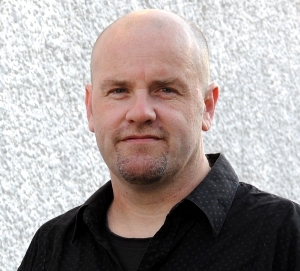Reading law expert praised by MPs for research into secret courts
Release Date 07 March 2012

A fiercely-contested law that could allow British courts to hear secret evidence on terrorism suspects from the security services has been making headlines - with research by Reading legal academics making a direct contribution.
UK Members of Parliament are debating the Justice and Security Bill in the House of Commons, with readings taking place on Monday and Thursday this week (4 and 7 March 2013).
While the UK Government is keen to push the law through to allow the work of anti-terrorism officers to be heard by judges presiding over cases - but not by the public or the media - civil liberties groups and opposition MPs are concerned about eroding principles of open justice.
Dr Lawrence McNamara, a reader at the University of Reading's School of Law, is head of the Law, Terrorism and the Right to Know research project at Reading and has given evidence during the Bill's committee stages.
He said: "The Commons votes on the Justice and Security Bill so far have profound implications for British justice. Members of Parliament refused to reinstate the earlier amendments made in the Lords which would have required courts to take account of open justice considerations and balance these against national security protection when deciding whether closed material proceedings could be used.
"As the Bill now stands, even if the degree of potential harm to national security is very small, and the public interest in openness is very great, it appears that the courts will still be required to use closed proceedings. These are fundamental changes which tend to rely on a blanket approach rather taking account of specific circumstances."
On Monday, MPs introduced two amendments based on Dr McNamara's work, suggesting there should be a register of when secret proceedings were used, and secret evidence should be time-limited, becoming public once it is no longer considered crucial to national security.
Dr McNamara's suggestions were quoted during the debate by Labour MPs John McDonnell and Andy Slaughter.
Mr McDonnell said: "I congratulate Lawrence McNamara on his work-on the advice that he gave the House overall, and the evidence that he gave to the Joint Committee on Human Rights."
Mr Slaughter told fellow MPs: "Dr McNamara... is a legal academic specialising in open justice and proceedings related to terrorism matters, and his briefings have been extremely helpful, particularly on these provisions."
ENDS
For more information contact Pete Castle at the University of Reading press office on 0118 378 7391 or p.castle@reading.ac.uk.
Notes to editors
- Dr McNamara will be providing live commentary on the third reading of the Justice and Security Bill in the House of Commons as it takes place on Thursday March 7 via Twitter. Follow @UniRdg_LTRK for updates.
- The School of Law at the University of Reading is internationally renowned for its research and teaching excellence. Its undergraduate law degree is ranked 11th out of 94 universities in the UK by the Complete University Guide and sixth in the UK for graduate employability by the Guardian University Guide.
- The University of Reading is ranked among the top 1% of universities in the world (THE World University Rankings 2012).
